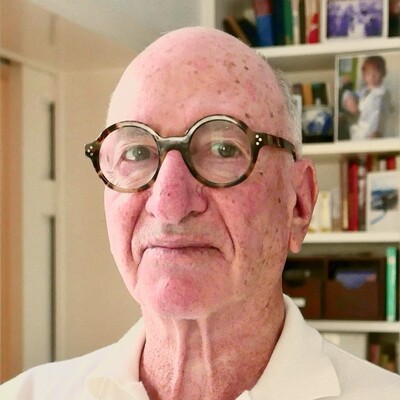Mark Wolf: Judge on a Global Mission
Campaign grows for an International Anti-Corruption Court.
February 8, 2016
Mark Wolf is a judge with a mission. He is now reaching far beyond the confines of the Boston area. There, for the last 30 years, he has presided over a courtroom that has tried prominent mobsters, crooked politicians and all manner of other low-lifes.
Now, the judge is aiming his sights on global villains that cannot be subjected to the U.S. justice system.
His idea is to promote the establishment of an International Anti-Corruption Court (IACC). To make his vision a reality, Judge Wolf is deploying enormous enthusiasm, energy and a network of contacts that reach to high levels in the White House.
Recently, he was making the rounds in the U.S. capital from the U.S. State Department to the White House, Congress and the Woodrow Wilson Center “think tank.” The goal is to build a coalition to promote the IACC.
Astonishingly, there is no effective legal means today to bring the world’s greatest kleptocrats to justice. They are able to steal vast amounts of wealth from citizens they are meant to serve, but operate with impunity.
They ensure that they are never prosecuted, simply by using their political powers. Accordingly, they write laws to protect themselves, appoint cronies as judges and intimidate, if not incarcerate, any critics in their home country’s media and civil society.
As a U.S. federal judge, it would be impolitic and undiplomatic for Wolf to take names. But the list of villains that need to be brought to justice for alleged multiple crimes of corruption is long indeed.
Corruption, a crime against humanity?
Currently, Transparency International is running an online competition to highlight the greatest cases of “grand corruption.”
Candidates highlighted who have allegedly pocketed staggering sums of public sector funds include Ricardo Martinelli, the former president of Panama; former Ukrainian president Viktor Yanukovych, and the billionairess Isabel dos Santos, daughter of Angola’s president Eduardo dos Santos.
There have long been discussions among academics and anti-corruption activists as to whether the International Criminal Court (ICC) should pursue major corruption cases.
When the vast majority of the population lives in absolute squalor, as they do in Angola, while a tiny powerful elite enjoys huge fortunes, then the case might be made that these transgressions are crimes against humanity.
Moreover, in countries that are seen as among the most corrupt in the world, it is impossible to separate grand corruption, massive violence and widespread human rights abuse.
Think of Somalia, North Korea, Afghanistan, Libya and Iraq, for example, as per the new Transparency International Corruption Perceptions Index.
In some cases, such as Sudan, the scale of human rights abuse has risen to the level of genocide, so that the country’s current president, Omar al-Bashir is on the ICC’s Wanted list.
For the most part, however, I do not believe that the crimes perpetrated by the villains of grand corruption rise to the level of genocide. I believe the ICC needs to keep a unique laser-like focus on genocide to underscore that never again should governments be able to perpetrate a “holocaust.”
Hurdles to overcome
There may be practical difficulties in arresting some of the grand crooks of corruption. Moreover, there may be considerable political pressures brought on this new court.
For example, in her exceptionally well-researched book, Putin’s Kleptocracy: Who Owns Russia?, Karen Dawisha, a professor at Miami University, makes a powerful case suggesting that Putin is a master of grand corruption.
Despite the damning evidence, for geopolitical reasons Western governments are not likely to welcome attempts by an international court to prosecute Putin for corruption. Therefore, the establishment of a distinct forum, as suggested by Judge Wolf, has appeal.
The ICC, which could be argued deals with worse crimes than those that the proposed IACC would tackle, has had great difficulty in pursuing cases against national leaders – for example, the South African government refused to arrest Sudan’s al-Bashir when he visited Johannesburg last June.
Or, a strong case could be made to suggest that former Egyptian President Hosni Mubarak greatly enriched himself by abusing his public office.
However, the current Egyptian government has dropped all charges against him and would probably go to considerable lengths to protect him from any form of international prosecution.
Given these hurdles, Judge Wolf’s initiative, along with the political support he is building, has one great merit: It raises the issue of impunity as a core problem in global efforts to reduce corruption.
Mobilizing people against corruption
As long as powerful national leaders rob their citizens and bestride the world in their private jets, purchasing valuable properties through sheltered holding companies offshore and laundering their ill-gotten gains through the world’s banks, people will continue to believe that the purpose of public service is, first and foremost, self-enrichment.
Democracy, freedom and human rights, all suffer so long as the people who would be prime targets for an IACC consider themselves above the law and have no fear of prosecution.
In time, there may be conditions that could enable an IACC to be effective. To get to that point we need to redouble efforts, country-by-country, to find effective ways to mobilize mass public opposition to corrupt regimes.
And, such efforts need to be combined with far greater international enforcement of anti-money laundering laws and regulations.
These are crucial to minimize the opportunities of the kleptocrats to spend their ill-gotten gains and to punish all the bankers, consultants, lawyers and accountants who serve as the enablers of money laundering.
Takeaways
There is no effective legal means today to bring the world’s greatest kleptocrats to justice.
Should the International Criminal Court (ICC) pursue major corruption cases?
The issue of impunity is a core problem in global efforts to reduce corruption.
People in many parts of the world believe that the purpose of public service is self-enrichment.
